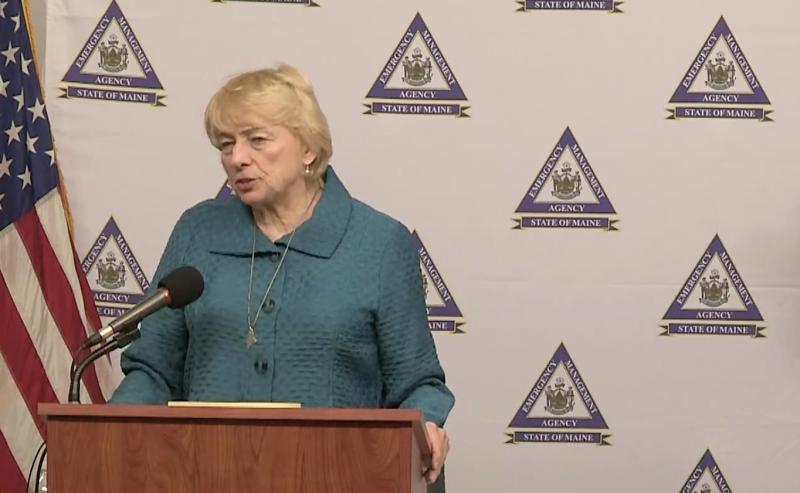Governor Mills expresses ‘grave concern’ over draft right whale biological opinion
On Feb. 19 The Maine Department of Marine Resources filed comments with the National Oceanic and Atmospheric Administration (NOAA) on the draft Biological Opinion for ten fishery management plans in the Greater Atlantic Region, focusing on the North Atlantic Right Whale. In a cover letter included with DMR’s comments, Governor Janet Mills expressed “grave concern” about the draft Bi-Op, warning it will be economically devastating and will fundamentally change Maine’s lobster fishery.
“In the absence of a significant change, this Framework will necessitate the complete reinvention of the Maine lobster fishery,” wrote Governor Mills. Despite other documented sources of serious injury and mortality to right whales, the draft Biological Opinion, a requirement of the Endangered Species Act, includes a Conservation Framework that calls for a 98 percent risk reduction over ten years in US fixed gear fisheries, including lobster.”
Governor Mills highlighted the Maine lobster industry’s decades of progress in protecting right whales. “Maine fishermen have worked collaboratively with the Department of Marine Resources for over twenty years to develop and implement measures to protect whales. They have been active participants at the Atlantic Large Whale Take Reduction Team table, looking for solutions that both maximize benefits to right whales and remain practicable for safe operations at sea.”
The Governor noted the importance of Maine’s lobster industry to Maine’s coastal economy. “The roughly half billion dollars generated in ex-vessel revenue from the fishery generates an additional $1 billion in indirect economic impact throughout the supply chain.”
Governor Mills also pointed out that the Conservation Framework is clearly aimed at the inevitable conversion to ropeless fishing if the 98 percent risk reduction target is upheld, which will result in a potentially devastating effect to Maine’s coastal economy. “If this comes to pass, it is not only fishermen and their crew who will be impacted, gear suppliers, trap builders, rope manufacturers – all these businesses face a deeply uncertain future.”
Governor Mills concluded her letter with a request for NOAA Fisheries to engage with Maine DMR around concerns with the Biological Opinion. “It is imperative that the State be involved more directly with NOAA Fisheries’ work with Canadian counterparts, as well as in addressing the many challenges associated with the adoption of new technologies such as ropeless fishing gear,” wrote Governor Mills.
“We remain committed to working with your agency to provide practical solutions to protect whales in a manner that is feasible for Maine fishermen and will not cause severe economic hardship for this critically important industry.”
Event Date
Address
United States
























